Programs
Archived Programs
- 10th Anniversary
- 5th Anniversary
- Adamize
- Communitas
- Critic Proof
- Culturally Determined
- Democracy in America
- The DMZ
- Drezburt
- Feminine Chaos
- Fireside Chats
- Foreign Entanglements
- Free Will
- Friedersdorf
- The Glenn Show
- Global Dispatches
- The Good Fight round 1
- The Good Fight round 2
- Interrobang‽
- Lessons Learned
- The Mind Report
- Percontations
- The Posner Show
- Pros & Conn
- Psychopolitica
- Rational Actors
- Science Faction
- Science Saturday
- The Score
- UN Plaza
- Values Added
- Washington Monthly
- Washington Squares
- The Week in Blog
- Woodruff & Strauss
- Worldwise
The Glenn Show
Glenn Loury invites guests from the worlds of academia, journalism and public affairs to share insights on economic, political and social issues.

Glenn and Mark debate whether intellectuals should be partisans in an election year. They argue about whether voter ID laws amount to voter disenfranchisement. Glenn complains about the political influence of unions. Mark accuses the Republican Party of climate change denial. Glenn reveals that he has been unimpressed by Obama’s performance, and reveals who he will vote for. Mark recalls an old essay of Glenn’s about political correctness, but gives it a new twist. Finally, they criticize the tactics of both presidential campaigns.

Looking back on their last diavlog, Glenn apologizes for having been rude and Harold apologizes for calling Barry Goldwater bigoted. Glenn reports on his recent trip to Nepal and the intense debate there over affirmative action. They discuss the difficulty in moving from a caste-based system towards equality and national reconciliation, and recall when whites were the sole recipients of political patronage and racial preferences in America. Harold criticizes Romney’s remarks in Israel about Palestinian backwardness. If the Supreme Court strikes down affirmative action, how will elite liberal universities respond? Harold closes by talking about the policy implications of the massacre in Aurora, Colorado.
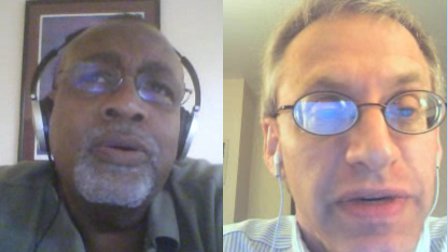
On The Glenn Show, Glenn and Harold discuss Romney’s speech to the NAACP. They debate whether Romney should have acknowledged past Republican racism. Was Obama’s race a help or a hindrance in his march to the White House in 2008? Harold and Glenn disagree about whether opposition to the civil rights laws of the 1960s was primarily motivated by racism. Glenn declares that the “black community” does not have a common political mind, and Harold and Glenn lament that there is not more competition from both parties for the black vote. They debate whether the current push for voter ID laws is anti-black. They close by connecting affirmative action in Nepal to reducing violence in Chicago.
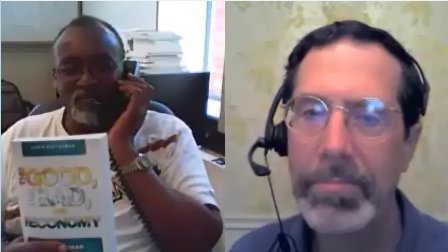
Louis Putterman joins Glenn to discuss his new book, The Good, the Bad, and the Economy. Louis explains what China’s experience of Maoism and capitalism tells us about human nature. He describes recent experimental work that shows the limits of the selfish-rational-actor model, noting that human beings are social animals with motivations that are more complicated, and more interesting, than the rational pursuit of self-interest. Glenn and Louis explain the irrational side of reciprocity. Louis reviews his research linking the strength of a nation’s institutions with how much its citizens trust each other. They draw some surprising conclusions from South Korea’s “cram schools.” They conclude by speculating that the emergence of the norm favoring gender equality may be an instance where egalitarian human values are winning out over human nature.
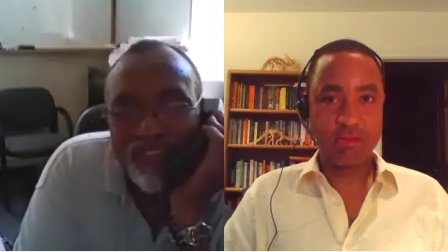
Glenn and John discuss their weariness with being spokesmen on the “race” issue in America. John anticipates more demand for such “race talk” in the coming year, with affirmative action and voting rights cases coming before the Supreme Court. John invites Glenn to reminisce about “race talk” in the 1990s, and Glenn laments that this was when neoconservatives became just plain conservatives. They discuss being the only black person in a room full of conservatives, and Glenn recalls why he once apologized to Jesse Jackson. John explains why he’s tired of speaking about race before largely white audiences. Glenn and John discuss stop-and-frisk policing and voting rights from their “weary with race” perspectives. Glenn declares his solution to being trapped in the ghetto of racial commentary: he’s going global.
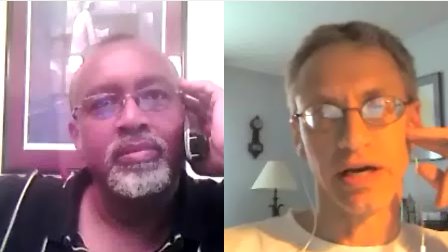
Glenn and Harold discuss the Supreme Court’s decision upholding the Affordable Care Act. Harold objects to viewing it in terms of the political horse race, but Glenn disagrees. They debate the extent to which Obamacare is a triumph for social justice. Harold the liberal praises Justice Roberts’s “conservative ruling.” Regarding the law’s Medicaid expansion, Glenn and Harold discuss the latitude that states should be allowed under our system of federalism. They debate whether the judicial vetting of the law was a waste of valuable time. Harold wonders why the Tea Party has been so much more effective than Occupy Wall Street. Casting consistency aside, Glenn defends Bain Capital while objecting to the financial bailout of 2009.

Glenn and Joshua talk about President Obama’s new immigration policy, and Joshua suggests that the real political opportunists are the opponents of the mini-DREAM Act. Glenn reports on anti-Obama sentiment on Wall Street, and says the president should borrow a page from Nixon’s playbook. Josh and Glenn agree that Obama missed an opportunity for progressive political mobilization after the financial crisis. Josh describes his work fostering social development in Nairobi, Kenya and wonders why similar work isn’t much done in the US. Glenn hypothesizes about why it’s so hard to solve problems close to home.
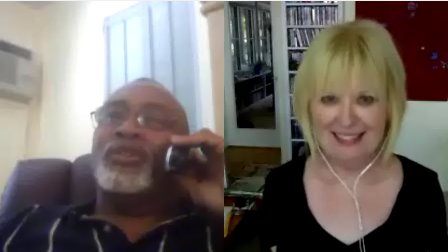
On The Glenn Show, Ann and Glenn discuss the constitutionality of President Obama’s healthcare law. Ann suggests that the Supreme Court striking down the law might help Obama’s political fortunes. Glenn disputes this, while observing that conservatives have certainly benefited over the years from the Court’s pro-abortion rulings. They discuss the uproar over Massachusetts Senate candidate Elizabeth Warren’s Native American ancestry, and, invoking the career of Justice Clarence Thomas, debate the politics of affirmative action. Responding to the failed attempt to recall Wisconsin Gov. Scott Walker, Ann thinks her formerly blue state is turning redder by the day. Glenn defends and Ann criticizes efforts to promote public employment during this recession.

On The Glenn Show, Glenn interviews his colleague John Tomasi about his new book, Free Market Fairness. John explains how economic liberties have been downplayed by political philosophers since the days of John Stuart Mill, and then suggests that John Rawls and Friedrich Hayek would have agreed on some fundamental principles of justice. In the long run, would robust economic rights be the best way to promote social justice? Glenn wants to know why, if Rawls and Hayek were in basic agreement, Rawlsians and Hayekians are today at each others’ throats. Finally, John explains how one can support both economic liberty and social justice.

On The Glenn Show, Harold makes the case for the Affordable Care Act, but Glenn wonders why Obama isn’t defending the law on the stump. In the wake of the controversy over Obamacare, Harold fears a “legislative Vietnam syndrome.” How should proponents of same-sex marriage treat those who use religion to argue against gay rights? Glenn and Harold discuss the problems with using religious arguments in the public sphere, and Harold defends the decidedly uncivil rhetoric of the writer and gay rights advocate Dan Savage. Turning to the presidential campaign, Glenn derides Obama’s attacks on Romney’s tenure in private equity. Should we be leery of a resurgent economic populism?
Archives
- January 2026(8)
- October 2025(8)
- August 2025(10)
- July 2025(13)
- June 2025(11)
- May 2025(12)
- April 2025(14)
- March 2025(12)
- February 2025(12)
- January 2025(15)
- December 2024(10)
- November 2024(11)
- October 2024(15)
- September 2024(12)
- August 2024(13)
- July 2024(12)
- June 2024(10)
- May 2024(14)
- April 2024(12)
- March 2024(14)
- February 2024(13)
- January 2024(15)
- December 2023(15)
- November 2023(17)
- October 2023(16)
- September 2023(18)
- August 2023(15)
- July 2023(14)
- June 2023(17)
- May 2023(15)
- April 2023(16)
- March 2023(19)
- February 2023(15)
- January 2023(16)
- December 2022(16)
- November 2022(16)
- October 2022(17)
- September 2022(19)
- August 2022(15)
- July 2022(17)
- June 2022(15)
- May 2022(17)
- April 2022(18)
- March 2022(15)
- February 2022(15)
- January 2022(16)
- December 2021(21)
- November 2021(19)
- October 2021(22)
- September 2021(19)
- August 2021(22)
- July 2021(24)
- June 2021(18)
- May 2021(18)
- April 2021(19)
- March 2021(19)
- February 2021(19)
- January 2021(19)
- December 2020(21)
- November 2020(19)
- October 2020(19)
- September 2020(21)
- August 2020(21)
- July 2020(20)
- June 2020(22)
- May 2020(19)
- April 2020(22)
- March 2020(18)
- February 2020(13)
- January 2020(18)
- December 2019(12)
- November 2019(14)
- October 2019(16)
- September 2019(15)
- August 2019(19)
- July 2019(14)
- June 2019(17)
- May 2019(18)
- April 2019(15)
- March 2019(18)
- February 2019(16)
- January 2019(19)
- December 2018(18)
- November 2018(15)
- October 2018(19)
- September 2018(16)
- August 2018(14)
- July 2018(15)
- June 2018(12)
- May 2018(13)
- April 2018(18)
- March 2018(16)
- February 2018(13)
- January 2018(10)
- December 2017(11)
- November 2017(14)
- October 2017(13)
- September 2017(10)
- August 2017(16)
- July 2017(17)
- June 2017(18)
- May 2017(18)
- April 2017(17)
- March 2017(19)
- February 2017(12)
- January 2017(14)
- November 2016(13)
- October 2016(11)
- September 2016(12)
- August 2016(9)
- July 2016(16)
- June 2016(17)
- May 2016(12)
- April 2016(16)
- March 2016(19)
- February 2016(12)
- January 2016(17)
- December 2015(17)
- November 2015(16)
- October 2015(17)
- September 2015(21)
- August 2015(22)
- July 2015(25)
- June 2015(26)
- May 2015(23)
- April 2015(25)
- March 2015(28)
- February 2015(28)
- January 2015(22)
- December 2014(28)
- November 2014(26)
- October 2014(30)
- September 2014(26)
- August 2014(26)
- July 2014(28)
- June 2014(27)
- May 2014(32)
- April 2014(26)
- March 2014(30)
- February 2014(28)
- January 2014(30)
- December 2013(28)
- November 2013(26)
- October 2013(26)
- September 2013(26)
- August 2013(25)
- July 2013(30)
- June 2013(37)
- May 2013(28)
- April 2013(30)
- March 2013(30)
- February 2013(31)
- January 2013(33)
- December 2012(34)
- November 2012(35)
- October 2012(42)
- September 2012(35)
- August 2012(38)
- July 2012(30)
- June 2012(32)
- May 2012(33)
- April 2012(33)
- March 2012(43)
- February 2012(34)
- January 2012(28)
- December 2011(30)
- November 2011(33)
- October 2011(36)
- September 2011(37)
- August 2011(34)
- July 2011(36)
- June 2011(36)
- May 2011(33)
- April 2011(36)
- March 2011(36)
- February 2011(34)
- January 2011(35)
- December 2010(38)
- November 2010(43)
- October 2010(38)
- September 2010(36)
- August 2010(38)
- July 2010(38)
- June 2010(38)
- May 2010(38)
- April 2010(35)
- March 2010(41)
- February 2010(35)
- January 2010(40)
- December 2009(35)
- November 2009(35)
- October 2009(41)
- September 2009(39)
- August 2009(41)
- July 2009(43)
- June 2009(41)
- May 2009(39)
- April 2009(40)
- March 2009(38)
- February 2009(35)
- January 2009(42)
- December 2008(36)
- November 2008(38)
- October 2008(45)
- September 2008(48)
- August 2008(45)
- July 2008(49)
- June 2008(48)
- May 2008(49)
- April 2008(45)
- March 2008(39)
- February 2008(38)
- January 2008(40)
- December 2007(33)
- November 2007(27)
- October 2007(31)
- September 2007(26)
- August 2007(32)
- July 2007(27)
- June 2007(30)
- May 2007(30)
- April 2007(25)
- March 2007(23)
- February 2007(19)
- January 2007(18)
- December 2006(11)
- November 2006(14)
- October 2006(11)
- September 2006(10)
- August 2006(9)
- July 2006(8)
- June 2006(11)
- May 2006(12)
- April 2006(10)
- March 2006(9)
- January 2006(9)
- December 2005(10)
- November 2005(14)


